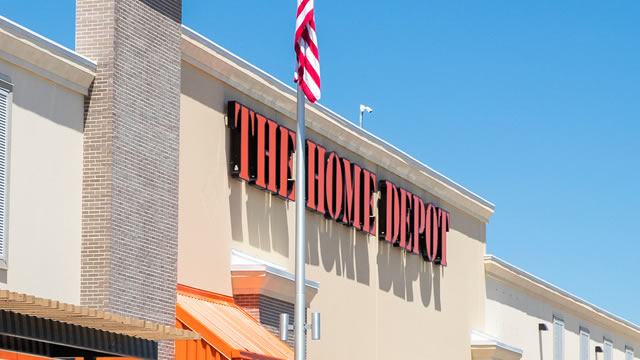The Home Depot’s Challenging Times:
The Home Depot, Inc., the world’s largest home improvement retailer, has been experiencing some turbulence in its business performance, despite the post-COVID housing boom. Recent economic data and the company’s third-quarter earnings report have raised concerns.
Economic Indicators:
Economic indicators suggest a slowdown in the housing market. Housing starts have decreased, and existing home sales have fallen for six consecutive months. Moreover, mortgage applications have dropped, indicating a decrease in demand for new homes. These trends could potentially impact Home Depot’s sales.
Earnings Report:
Home Depot’s third-quarter earnings report showed a decline in average ticket size, comparable sales, and operating margins. The average ticket size, which represents the total amount spent per customer visit, decreased by 3.4%. Comparable sales, which measure sales growth at stores open for at least a year, were up just 2.2%, down from 3.2% in the previous quarter. Operating margins, which reflect the company’s profitability, fell to 13.9% from 14.3% in the same quarter last year.
Valuation and EPS Growth:
The stock’s valuation, based on forward GAAP earnings, stands at a high 25.84x. Analysts expect the company’s EPS (earnings per share) to grow at a modest rate of 6-8% over the next six years. This growth rate is lower than the historical average of 11.5%.
Impact on Consumers:
For consumers, a slowdown in Home Depot’s business performance could mean fewer promotions and discounts, as the company tries to maintain profits. This might also result in higher prices for home improvement projects. However, it’s important to note that Home Depot remains the largest player in its industry, and it has the financial resources to weather this downturn.
Impact on the World:
On a larger scale, a slowdown in Home Depot’s performance could have ripple effects on the construction industry and the broader economy. A decrease in home sales and renovation projects could lead to job losses in the construction sector. Moreover, Home Depot is a significant buyer of building materials, so a decline in its sales could impact suppliers and manufacturers.
Conclusion:
Home Depot’s recent financial performance raises concerns about the sustainability of the post-COVID housing boom. Economic indicators suggest a slowdown in the housing market, and Home Depot’s earnings report shows declining sales and profitability. The company’s high valuation and modest EPS growth expectations add to the uncertainty. For consumers, this could mean fewer discounts and potentially higher prices for home improvement projects. For the world, a slowdown in Home Depot’s business performance could have ripple effects on the construction industry and the broader economy.
- Economic data shows a potential slowdown in the housing market.
- Home Depot’s third-quarter earnings report shows declining sales, profitability, and average ticket size.
- The company’s valuation is high, and EPS growth expectations are modest.
- Consumers may see fewer discounts and potentially higher prices for home improvement projects.
- A slowdown in Home Depot’s performance could impact the construction industry and the broader economy.





